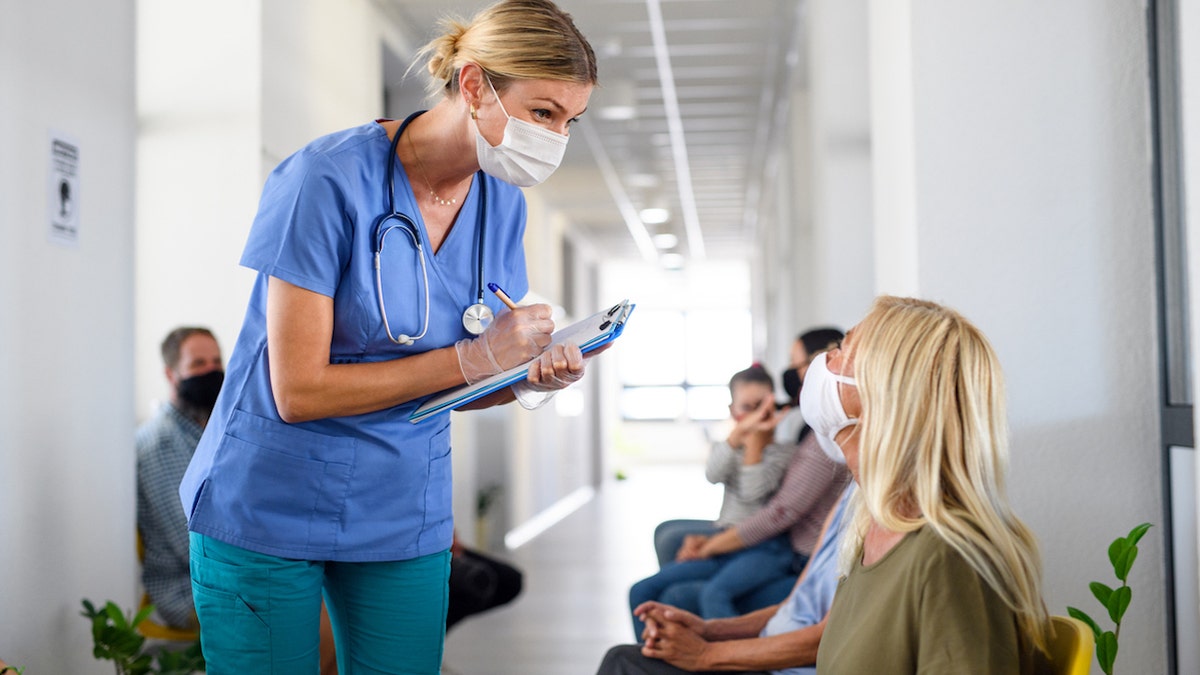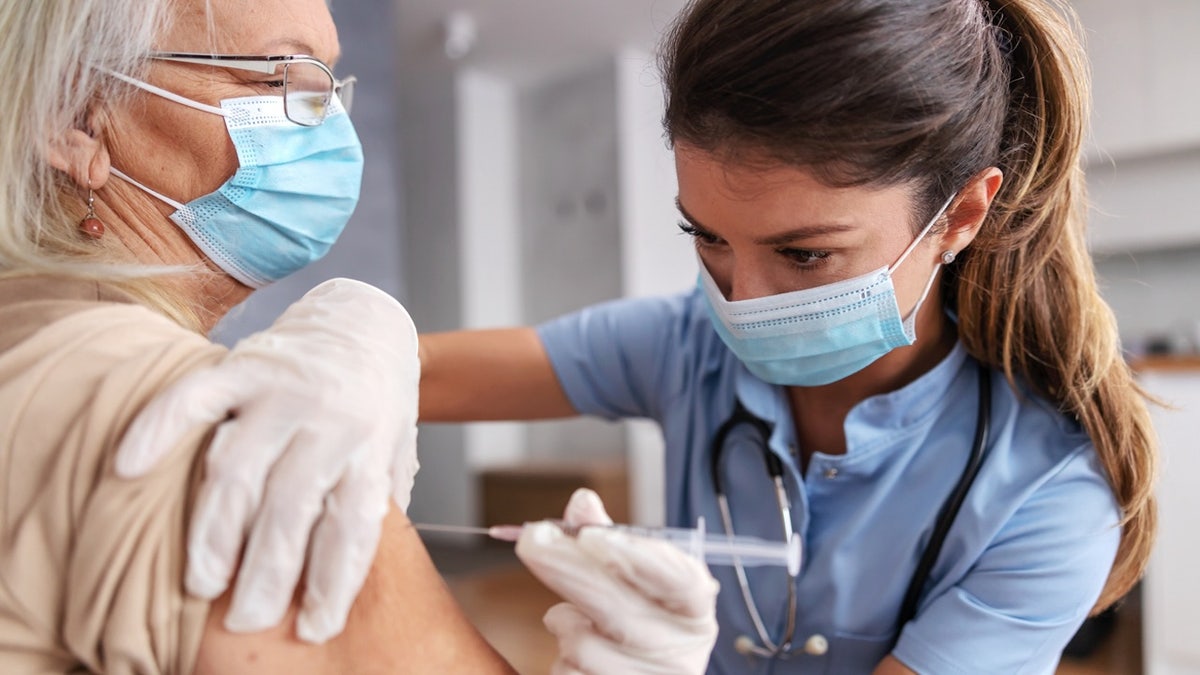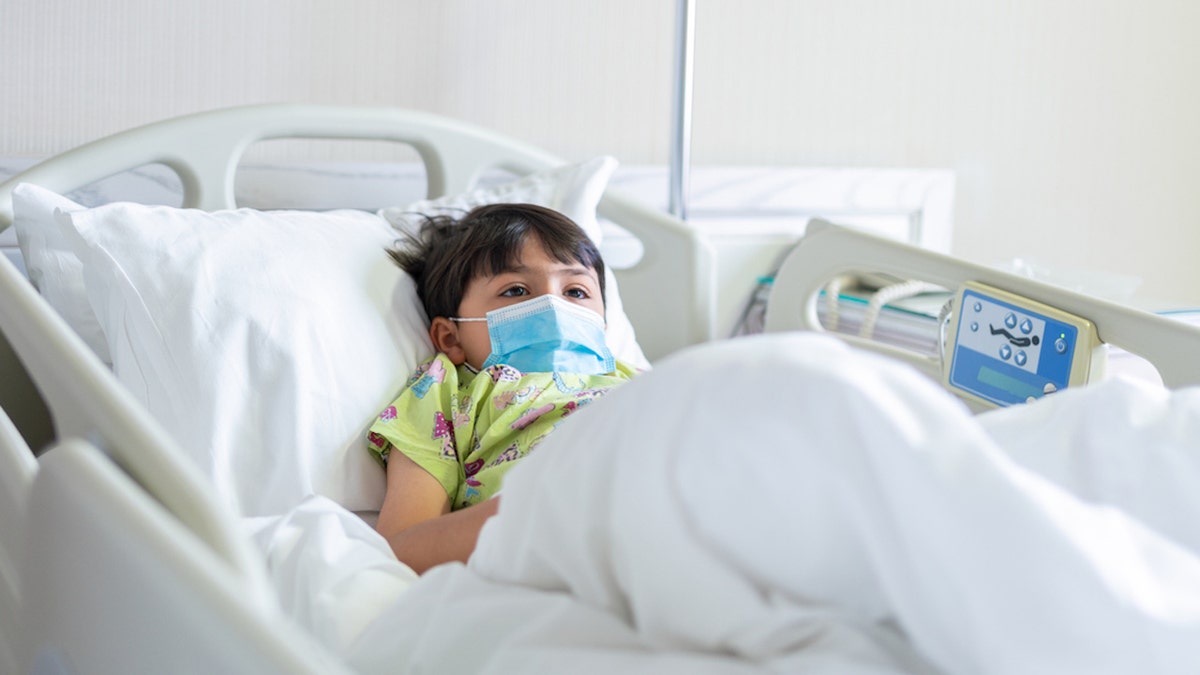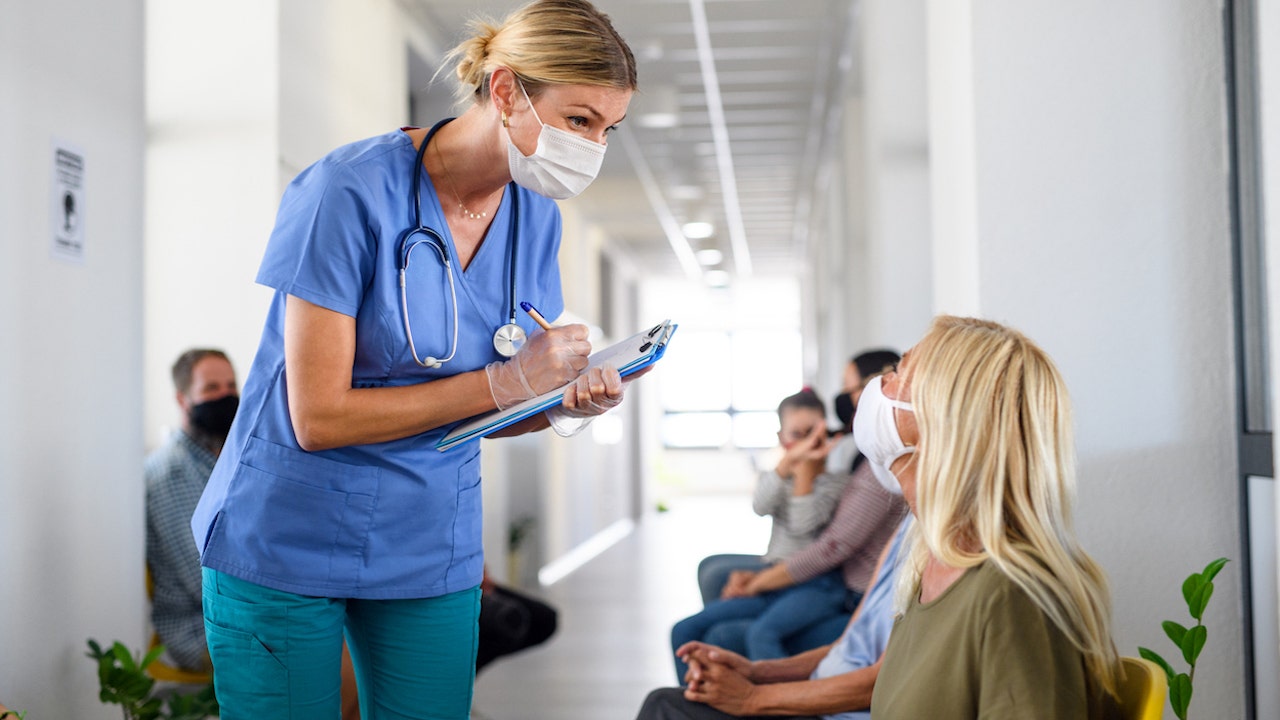New York City public hospitals are joining a growing number of health care facilities in states across the country to reinstitute mask mandates, according to multiple reports.
The indoor mask requirement is in effect at 11 hospitals, 30 health centers and five long-term care facilities that are part of the NYC Health + Hospitals system, according to a recent news report.
The mandates are in response to a rise in COVID-19 cases and influenza respiratory infections, although the current increase is minimal compared to the spikes seen during the pandemic.
FAUCI ‘CONCERNED’ PEOPLE WON’T COMPLY IF MASKING RECOMMENDATIONS RETURN: ‘I HOPE’ THEY ‘ABIDE’
As of Jan. 1, 2024, the seven-day average of COVID cases in New York City was 2,131, according to the New York City Department of Health and Mental Hygiene.
Although this is a slight uptick over previous weeks, it is far lower than the count seen two years ago in Jan. 1, 2022, when the seven-day average was 41,910 – nearly 20 times higher than today.
Hospital systems in several states have reinstituted mask mandates, according to recent news reports, but some have an issue with this. (iStock)
For influenza, there was a 3% increase in positive cases for the week ending Dec. 30, 2023, according to the New York City Department of Health and Mental Hygiene.
Positive cases of RSV actually decreased by 18% over the previous week.
The indoor masking requirement applies only to patient care areas in the facilities, Health Commissioner Dr. Ashwin Vasan told a local news outlet.
Resuming the masking mandate is seen as a way to protect medical workers from respiratory illnesses, he said.
However, none of the city hospitals are overwhelmed with patients at the moment, Vasan added.

Hospital systems in at least six other states — California, Illinois, Massachusetts, North Carolina, Washington and Wisconsin — have instituted mask mandates, according to recent news reports. (iStock)
“Masking remains an extremely important and effective way to reduce transmission of respiratory viral infections, including COVID and influenza,” Dr. Aaron Glatt, chief of infectious diseases at Mount Sinai South Nassau Hospital on Long Island, New York, told Fox News Digital.
In addition to New York, hospital systems in at least six other states — California, Illinois, Massachusetts, North Carolina, Washington and Wisconsin — have also instituted mask mandates, according to recent reports.
As of Jan. 1, the seven-day average of cases in New York City was 2,131 — nearly 20 times less than the 41,910 cases seen at the same time in 2022.
Some of those include UC Health in Cincinnati; Sonoma (California) Valley Hospital; University of Chicago Medicine Center; City of Hope in Duarte, California; Kaiser Permanente Santa Rosa Medical Center in California; and UMass Memorial Medical Center in Worcester, Massachusetts, among others, according to Becker’s Hospital Review.
CDC warns of hospitalizations, low vaccinations
On a national level, hospital admissions due to COVID-19 increased by 16.7% to 29,059 for the week ending Dec. 23, according to the Centers for Disease Control and Prevention (CDC).
The omicron variant JN.1 is expected to account for approximately 39% to 50% of circulating variants in the United States, according to CDC data as of Dec. 23.

Resuming the masking mandate helps to protect medical workers amid a spike in respiratory illnesses, a doctor told Fox News Digital. (iStock)
Despite the variant’s quick growth, the agency said “there is no evidence that JN.1 presents an increased risk to public health relative to other currently circulating variants” as it does not appear to cause increased severity of illness.
Hospital admissions linked to influenza also increased nationally to 14,732 for the week ending Dec. 23.
FACE MASKS MADE ‘LITTLE TO NO DIFFERENCE’ IN PREVENTING SPREAD OF COVID, SCIENTIFIC REVIEW FINDS
“CDC estimates that there have been at least 7.1 million illnesses, 73,000 hospitalizations and 4,500 deaths from flu so far this season,” the agency noted on its website.
Some 44% of adults in the U.S. had received the flu vaccination by late December and only an estimated 19% had received updated COVID-19 vaccinations as of early December, according to CDC data.

Approximately 44% of adults in the U.S. had received the flu vaccination by late December and only an estimated 19% had received updated COVID-19 vaccinations as of early December, according to CDC data. (iStock)
“The decision to mandate the wearing of masks — versus just strongly recommending them — will depend in part upon the incidence of COVID and influenza, the presence of immunocompromised patients on selected units and many other variables,” Glatt told Fox News Digital.
The CDC urges people and institutions to visit the agency’s website for information to help them make an informed decision on when to wear or require a mask.
Some factors that should influence the decision include local COVID hospital admission levels and an individual’s underlying risk factors for severe disease, such as older age, pregnancy and certain medical conditions.

The CDC urges people and institutions to visit the agency’s website for information to help them make an informed decision on when to wear or require a mask. Not all doctors, however, support universal mask mandates. (iStock)
“Each institution needs to assess all of these parameters and come up with an appropriate policy that can be implemented and easily modified as needed,” Glatt added.
On social media, people have been voicing their opinions about the return of mask mandates.
One individual wrote on a YouTube thread about mask mandates, “Imagine being double masked and quadruple jabbed, still catch COVID and thinking this stuff still works.”
‘PANDEMIC SKIP,’ A COVID MENTAL HEALTH PHENOMENON, COULD DELAY MAJOR MILESTONES, EXPERTS SAY
Said another commented, “Just in time for the election year.”
Sen. Eric Schmitt, R-Mo., posted his response to the city of St. Louis issuing mask mandates for its workers on Jan. 5, calling the move “tyrannical.”
Dr. Marc Siegel, clinical professor of medicine at NYU Langone Medical Center and a Fox News medical contributor, also weighed in on the issue of hospitals reinstating mandates.
“There is a large increase in hospitalizations from a combination of COVID and flu season starting to peak. RSV is contributing but has already peaked,” he told Fox News Digital.
CLICK HERE TO SIGN UP FOR OUR HEALTH NEWSLETTER
Although Siegel has said he does not support universal mask mandates, he said they do “make some sense” in hospitals.
“Doctors and nurses generally know how to wear masks and are more likely to choose a high-grade mask, which is more effective,” he said.
CLICK HERE TO GET THE FOX NEWS APP
“When treating hospitalized patients, all tools we have are helpful at decreasing viral spread among the vulnerable and severely ill,” Siegel added.
“Hospital workers are not likely to comply otherwise, unfortunately.”

